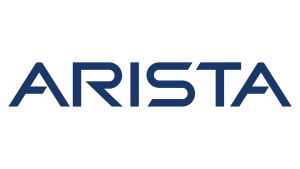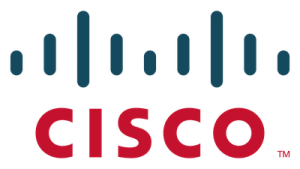Packet Blast: Top Tech Blogs, Apr. 1
We collect the top expert content in the infrastructure industry and fire it along the priority queue.
We collect the top expert content in the infrastructure industry and fire it along the priority queue.
The legal feud between Cisco and Arista may finally be over, though perhaps not in the way any of us had expected.


The news starting to filter out of San Jose this morning is that Cisco has agreed to drop its lawsuit in return for the immediate acquisition of Arista Networks’ assets, intellectual property and employees. After the ITC’s initial determination last month that Arista had infringed on three out of five patents listed in the suit, it is understood that this solution was urgently brokered to protect the company’s employees from the potential fallout should the ITC’s next ruling be less than favorable.
Sources close to Cisco CEO Chuck Robbins are saying that Cisco plans to rebrand Arista’s impressive 7500 switch hardware as the new flagship Cisco Nexus 8000 series. With its reassuringly familiar command line interface, Arista’s EOS should be a seamless addition to Cisco’s impressive existing portfolio of network operating systems (i.e. IOS, Native IOS, IOS-XR, IOS-XRv, IOS-XE and NXOS) and customers will likely be lining up to deploy the impressive new Nexus 8000 series hardware without having to suffer through the pains of the usual new product learning curve.
In some ways the timing of Continue reading
How does Internet work - We know what is networking
As you can see from my article list, I’m going through some VRF configuration in the last few weeks I ran into this today and it sounded interesting enough to share it with you. The issue with TFTP IOS image copy to flash when having all interfaces in specific VRF and no interface in Global Routing Table. Long story short, you kick in this command for normal IOS download to the router: R1#copy tftp://10.10.10.11/c890-universalk9-mz.154-3.M5.bin flash: Destination filename ? Accessing tftp://10.10.10.11/c890-universalk9-mz.154-3.M5.bin... %Error opening tftp://10.10.10.11/c890-universalk9-mz.154-3.M5.bin (Timed out) …and it isn’t working of course. The issue is in having all interfaces member of
Since I roundly dumped all over the IETF I’ve been thinking how the IETF could improve. My current best idea is “testing”.
The post IETF and an “Acid” Testing Suite appeared first on EtherealMind.
This morning Cisco announced the release of a groundbreaking new product offering complete control of a Cisco-based enterprise network using Apple’s iPhone™ platform. IOS For iOS
, or IFi®
(pronounced eye-Fie, kind of like WiFi but without the W) will be available in the App Store in July 2016. Cisco have described the app as bringing Cellphone Defined Networking
(CDN) to busy network engineers and administrators.

The basic idea is to offer real time telemetry and full remote automation of the network so that engineers can make critical changes anywhere and anytime, reducing Mean Time To Restore (MTTR) and increasing employee satisfaction. The system requires at least one companion server
to be located in a data center to perform management and automation functions on the user’s behalf. The other component of course is the app itself, which connects to the companion server as needed.
My main initial criticisms of the app are that it requires a massive 23GB (you read that correctly!) of storage on your iPhone, and–due to the screen estate needs and the CPU required for the app to run at a reasonable speed–it is only recommended for use on the iPhone Continue reading
As we’ve seen in many of the prior posts, VMware NSX is a powerful platform decoupling networking services from physical infrastructure. NSX effectively enables logical networking and security within a virtualized environment; this brings many of the same benefits we’re familiar with gaining from server virtualization such as flexibility, faster provisioning, better utilization of hardware, cost savings, decreased downtime, etc. One of the major benefits of the software approach that NSX brings is the ability to automate easily via REST API. In this post, we’ll take a look at a simple yet realistic use case focused around security where automation can help. Continue reading
Take the direct approach to thwarting cybercriminals. Today is a great day to start.
Nearly 200 countries signed the fossil fuel ramp-down agreement in Paris at the end of last year. New goals are now in place to end the use of fossil fuels worldwide. No more global warming could be in the cards.
Sounds good, right? Well it probably is, but there’s a slight problem: Just how are we going to power our smartphones, homes, factories, and Internets without coal and gas? That’s a lot of solar panels and windfarms needed—and needed quickly.
One high school kid reckons he’s got the answer, reported Popular Science magazine a few weeks ago: Just stick a bunch of solar panels on the moon and beam the power back down to Earth by microwave.
To read this article in full or to leave a comment, please click here
 Nothosauraus promises to be an open source heavyweight.
Nothosauraus promises to be an open source heavyweight.
A while ago Christer Swartz explained how a Palo Alto firewall integrates with VMware NSX. In the meantime, Palo Alto announced integration with Cisco ACI and OpenStack, and it was time for another podcast with Christer deep-diving into the technical details of these integrations.
Spoiler: It’s not OpFlex. For more details, listen to Episode 53 of Software Gone Wild